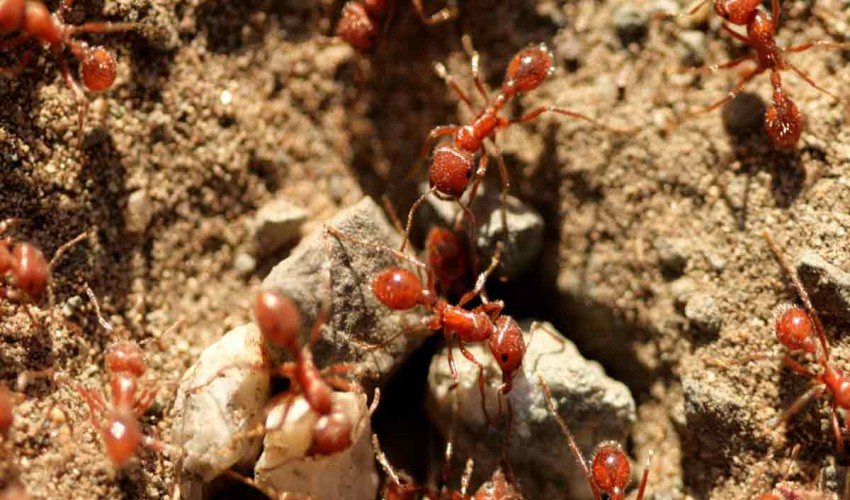
Cascading Effects of Invasive Ants on African Savanna Food Webs
- Rating
- invasive species
- mutualism disruption
- African savanna
- food web impact
- acacia ants
- elephant behavior
- lion diet adjustment
A recent study has revealed how a seemingly minor alteration in the African savanna's ecosystem can have extensive repercussions, stretching all the way to the top of the food chain, affecting lions. This research, published in the journal Science on January 25, highlights the intricate interdependencies within food webs and the significant impact invasive species can have through indirect pathways.
The study focuses on the invasion of the savanna by big-headed ants (Pheidole megacephala), which displace the native acacia ants (Crematogaster genus) that play a crucial role in protecting whistling thorn trees from elephants. In the absence of these guardian ants, elephants freely destroy the thorn trees, leading to more open grasslands. This environmental change makes it difficult for lions to ambush their favored prey, zebras, forcing them to adapt by hunting buffaloes instead.
Wildlife ecologist Jake Goheen and his team from the University of Wyoming and the Ol Pejeta Conservancy have been investigating the protective relationship between acacia ants and whistling thorn trees for over 15 years. They found that when elephants attempt to feed on these trees, the ants aggressively defend their territory by swarming up the elephant's nostrils and biting aggressively.
Simultaneously, the researchers studied the diet of lions within the conservancy, discovering a preference for hunting in areas with dense tree cover. However, as the big-headed ants exterminate the native ants and elephants subsequently reduce the tree population, the landscape becomes more open, significantly impacting the lions' hunting success.
To quantify this effect, the team tracked the hunting patterns of lions, specifically focusing on areas affected by the ant invasion compared to those that were not. They found that in areas dominated by big-headed ants, visibility was significantly higher, reducing the lions' ability to successfully hunt zebras. Over three years, the proportion of zebra kills by lions dropped, while buffalo kills, a more dangerous prey for lions, increased.
This research underlines the importance of mutualistic relationships in ecosystems and demonstrates how the disruption of one such relationship can have far-reaching consequences, altering the dynamics of predator-prey interactions and impacting the broader ecological community. It serves as a reminder of the complexity of food webs and the potential for unexpected outcomes resulting from the introduction of invasive species.
CITATIONS
D.N. Kamaru, et al. Disruption of an ant-plant mutualism shapes interactions between lions and their primary prey. Science. Published online January 25, 2024. doi: 10.1126/science.adg1464.
Leave a Reply
Your email address will not be published. Required fields are marked *


